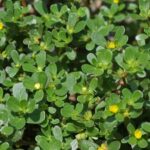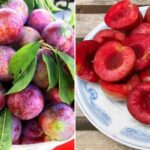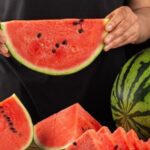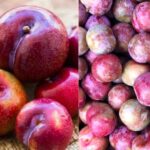Basil and ginger are two spices commonly used in cooking, but did you know that combining them creates a healthy drink?
Basil’s Benefits
In traditional medicine, basil leaves are believed to have a warming effect and a pungent taste. They are associated with the lung and spleen meridians and are used to dispel wind, tonify qi, and relieve bloating.
Basil leaves are used to treat common colds caused by wind-cold, as well as spleen and stomach stagnation, vomiting, and chest congestion.
It is also a remedy for abdominal pain, vomiting, and diarrhea caused by food poisoning from crab or fish.
Ginger’s Properties
Ginger, according to traditional medicine, is also warming and pungent, and it enters the lung, stomach, and spleen meridians. It is commonly used in formulas to stop coughing, transform phlegm, prevent vomiting, warm the stomach, and dispel chills. It also helps with external symptoms.
Ginger is used to treat coughs with excessive phlegm and vomiting caused by wind-cold.
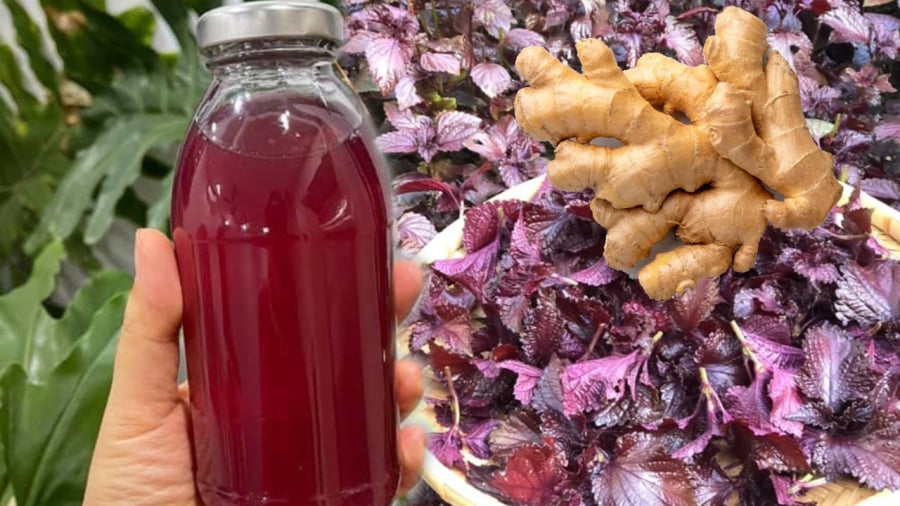
What Are the Effects of Combining Basil and Ginger?
Basil leaves regulate the middle burner, disperse stagnant qi, expel cold, and detoxify. They are often used to treat qi deficiency with a cold aspect, disharmony between the spleen and stomach, externally-contracted wind-cold, vomiting, and food poisoning. Ginger also expels cold and warms the stomach, preventing nausea. Additionally, it induces sweating and treats flu and coughs.
While basil is warming, ginger has a cooling effect. When combined and brewed into a drink, they provide various benefits, including nutrient supplementation and detoxification.
- Cold Relief
Take some basil leaves, add shredded ginger and scallions to a cup of hot water, and steep for about 10 minutes. Strain the liquid, add sugar to taste, and drink it warm.
This concoction dispels wind, clears heat, induces sweating, dispels cold, and alleviates abdominal pain, vomiting, diarrhea, and cough caused by wind-cold. It also treats external symptoms.
- Wind-Chasing Tea
Clean basil leaves, fresh ginger, and seedless Chinese dates can be combined in a pot of water and boiled for about five minutes. Pour the water into a cup and drink it warm.
This tea warms the yang, eliminates dampness and cold, and regulates the spleen and stomach. It is ideal for travelers who get caught in the rain.
- Balancing Qi and Soothing the Stomach
Combine 10 grams each of basil and orange peel with 15 grams of shredded ginger in a cup. Add boiling water and steep for about 10 minutes. You can add brown sugar to taste. This drink soothes the stomach and is suitable for those with stomach pain caused by cold, reducing symptoms like abdominal distension, chest tightness, and vomiting.
While ginger and basil tea offer numerous health benefits, it is not suitable for everyone. Those with allergies to any of the ingredients should refrain from consuming this drink.
Pregnant women should avoid excessive basil consumption as it can increase blood pressure and stimulate the uterus, which may be detrimental to both mother and child.
Individuals with high blood pressure or a hot constitution should also use basil and ginger sparingly, as they can elevate blood pressure and cause internal heat and acne.
In conclusion, ginger and basil tea provides a plethora of health benefits, including immune-boosting and health-improving properties. However, moderation is key, and excessive consumption should be avoided.
Wild Purslane: This Weed-like Vegetable is a Nutritional Powerhouse and a Modern Delicacy
Introducing the humble purslane, a powerhouse of nutrition and an affordable superfood. This unassuming vegetable, often overlooked in the market, is a treasure trove of health benefits. With its vibrant green leaves and delicate stems, purslane is a versatile ingredient that elevates any dish. Don’t walk past this humble vegetable; instead, embrace its goodness and unlock a world of culinary delights and nutritional benefits.
The Tiny Seafood Surprise: A Calcium-Rich Treat for Stronger Bones this Summer
Shrimp – A humble crustacean that packs a powerful punch when it comes to nutrition. With a calcium content three times that of soybeans, shrimp is a summer “delicious medicine.” This flavorful and nutritious delicacy is often overlooked by many Vietnamese, yet it boasts a plethora of health benefits, especially for bone strength. Let’s delve into the advantages of this modest yet mighty seafood and learn how to unlock its full potential.

























